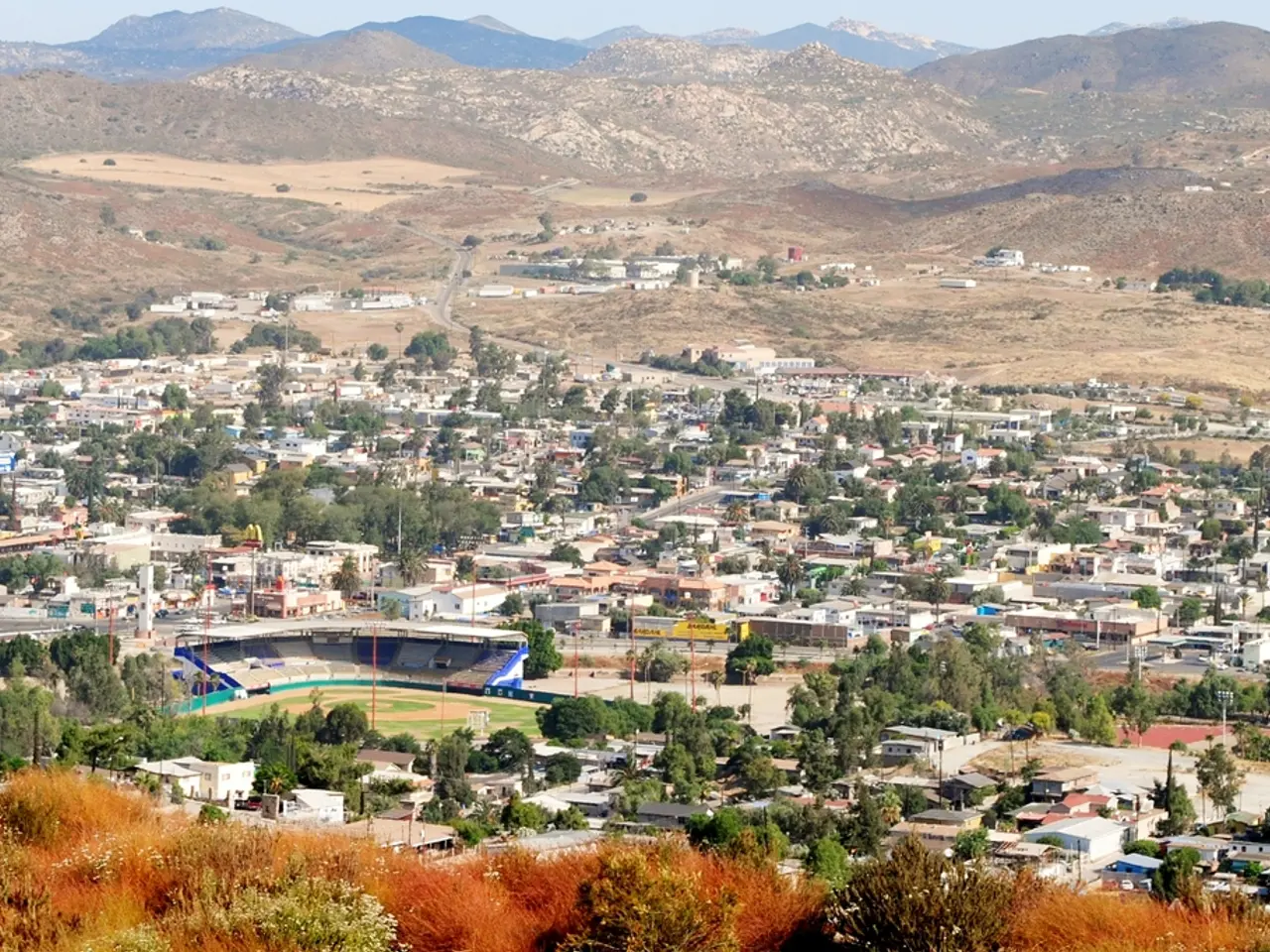Trump's Battle for Redistricting Could Extend and Intensify, with Texas and California at the Center
In the political landscape of the United States, two of the most populous states, Texas and California, are engaged in a fierce competition ahead of the 2026 elections. This competition is centred around redrawing congressional maps, a move that could significantly impact the balance of power in the House of Representatives.
In Texas, the Republican-led legislature is pushing for a plan to redraw congressional districts in a manner that would add five Republican seats to the U.S. House delegation. This move is aimed at helping the GOP maintain control of the House in the 2026 midterms. However, Texas Democrats have been actively resisting this plan, including by boycotting legislative sessions to deny quorum. The GOP and state leadership are moving forward, with legal efforts underway to remove absent Democrats from office.
On the other side of the country, California is influenced by Texas's actions. The state, led by Governor Gavin Newsom, is considering a plan to secure 48 of 52 congressional seats, up from the current 43. This move is in response to Texas's mid-decade redistricting. Although California's process typically involves a non-partisan redistricting commission that limits partisan manipulation, the state is exploring ways to redraw districts strategically ahead of the 2026 elections.
The impact on the 2026 elections could be significant. In Texas, the GOP's plan could yield a net gain of 5 House seats, strengthening Republicans' narrow majority in Congress. However, some of these new districts have Hispanic majorities, and while Trump won big in these areas in 2024, recent surveys suggest Hispanic support for Republicans may wane due to dissatisfaction with inflation and immigration handling, which could limit GOP gains.
The escalating redistricting battles may provoke reciprocal moves by Democrats in other states, potentially leading to widespread partisan redistricting efforts that reshape the electoral map nationally. This nationwide redistricting struggle will shape political control in the House and possibly other offices in the 2026 midterms.
Former Republican Governor Arnold Schwarzenegger has signaled he will campaign to protect the independent redistricting commission in California. In Illinois, state Rep. Ramon Romero, who left for Illinois, said they are standing tall and are willing to pay fines if necessary.
The Texas House will convene again on Friday, with the governor proposing a special election for the first week of November, but this is a tight timeline ahead of a statewide referendum later that month. Republican Gov. Greg Abbott of Texas has made threats about removing members who are absent, but Democrats argue that Abbott does not have the legal authority to do so.
Many Democrats hope Newsom's push in California will compel Texas Republicans to stand down. Governors Pritzker and Kathy Hochul have promised to explore ways to redraw congressional districts to counter GOP efforts, potentially making Texas and California blueprints for a multistate redistricting bonanza.
Thad Kousser, a political science professor at the University of California, San Diego, stated that Democrats have a path to victory if they can make this a referendum on Donald Trump and his collaboration with Texas to stack the deck in his favor. The current redistricting battle in Texas demonstrates Trump's influence on the Republican Party and tests the balance of powers between the federal and state governments.
[1] https://www.nytimes.com/2021/07/13/us/politics/texas-redistricting-map.html [2] https://www.washingtonpost.com/politics/2021/07/13/texas-democrats-boycott-legislative-session-block-gop-redistricting-plan/ [3] https://www.politico.com/news/2021/07/13/texas-redistricting-battle-california-513670 [4] https://www.nbcnews.com/politics/politics-news/texas-democrats-boycott-legislative-session-block-gop-redistricting-plan-rcna1630660
- The fierce competition between Texas and California ahead of the 2026 elections extends beyond general news and politics, reaching into the realms of science, health, war-and-conflicts, policy-and-legislation, crime-and-justice, and car-accidents, as the balance of power in the House of Representatives has significant implications for all these areas.
- In the context of this competition, the Texas legislature's plan to redraw congressional districts could lead to a rise in business-related issues, as the addition of five Republican seats could influence various economic policies and measures.
- Meanwhile, California's plan to secure more congressional seats might impact the state's environmental policies, given the high priority placed on environmental issues in California's science and health sectors.
- The activities surrounding redistricting in both states could potentially trigger increased fires and accidents due to the extended legislative sessions and possible public unrest.
- Intriguingly, the NFL, NCAA football, basketball, and other sports might experience a shift in their fan bases and sponsorships, as the changes in congressional districts could influence sports-related policy-and-legislation at both state and national levels.
- The escalating tensions might also influence international relations, as foreign investors and allies observe the power struggle within the United States and adjust their strategies accordingly.
- On the entertainment front, the ongoing redistricting battle could affect the media landscape, as news outlets covering war-and-conflicts, crime-and-justice, sports, and general news might need to reassess their coverage plans to accommodate the developing story.
- Lastly, the relationship between American-football, politics, and business could undergo significant changes, as the redistricting outcome may impact the political leanings of certain NFL and NCAA football teams' fan bases, which could in turn influence their sponsorships and broadcasting deals.







